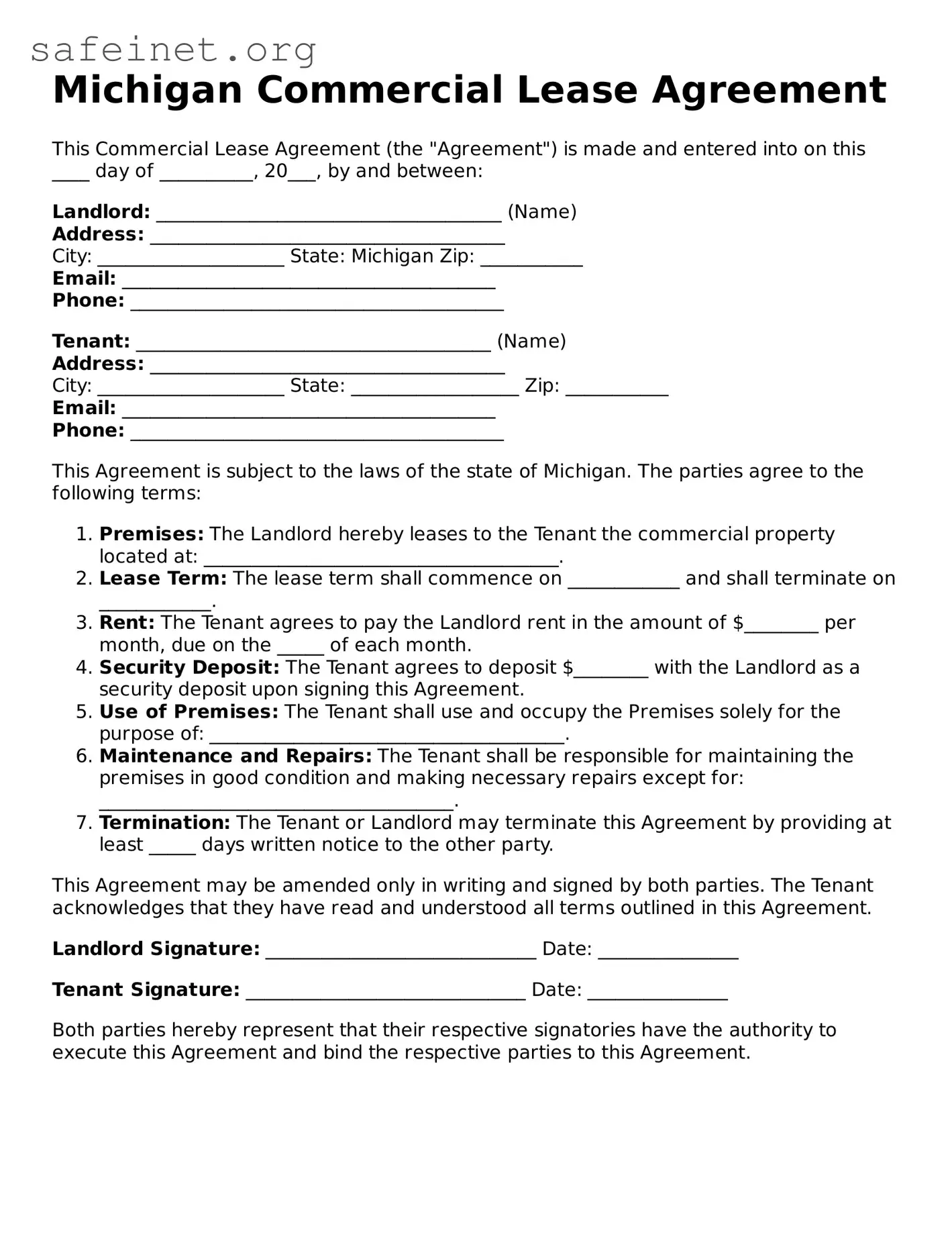What is a Michigan Commercial Lease Agreement?
A Michigan Commercial Lease Agreement is a written contract between a landlord and a business tenant. This document outlines the terms and conditions under which the tenant can occupy commercial property. It typically includes details like rental amounts, lease duration, property use, and maintenance responsibilities.
Who should use a Commercial Lease Agreement?
Both landlords and business tenants should use a Commercial Lease Agreement. Landlords can protect their property rights, while tenants can establish their rights and responsibilities. This agreement is beneficial for any business looking to lease office space, retail locations, or other types of commercial real estate in Michigan.
What key terms should be included in this agreement?
The agreement should include several important terms. These typically cover the rental payment amount, payment dates, lease term length, security deposit requirements, permissible uses of the property, and any maintenance obligations. Additionally, clauses regarding renewal options and termination procedures should also be included.
How long does a typical lease last?
The length of a commercial lease can vary widely depending on the agreement between the landlord and tenant. Common durations range from one year to multiple years, such as three to five years. Some leases may also have options for renewal or extension at the end of the initial term.
Are there any legal requirements for a Commercial Lease Agreement in Michigan?
While there are no specific legal requirements mandated by Michigan law for a Commercial Lease Agreement, it is advisable to comply with general state and local laws. This includes ensuring that the agreement does not include illegal or discriminatory clauses. It is recommended to have a clear and fair document to prevent disputes.
What is a security deposit and how is it handled?
A security deposit is an amount paid by the tenant to the landlord before moving into the commercial property. It serves as a form of protection for the landlord against unpaid rent or damages. In Michigan, the handling of the security deposit should be specified within the lease, including the amount, conditions for its return, and any allowable deductions.
Can the lease be modified after it is signed?
Yes, modifications can be made to a signed Commercial Lease Agreement, but both parties must agree to the changes. It is best to document any amendments in writing and include them as addenda to the original lease. This ensures clarity and protects the interests of both the landlord and tenant.
What should I do if I want to terminate the lease early?
If a tenant wants to terminate a lease early, they should first review the lease agreement for early termination clauses and procedures. Many agreements specify notice periods and possible penalties. Communicating openly with the landlord can also lead to negotiation, potentially avoiding legal complications.
What happens if the tenant fails to pay rent?
If the tenant fails to pay rent, the landlord typically has the right to initiate eviction proceedings. The lease should outline the steps that can be taken in the event of non-payment. It’s crucial for tenants to understand their rights and obligations to avoid potential legal issues.
Is it necessary to have a lawyer review the lease?
While it is not legally required to have a lawyer review a Commercial Lease Agreement, it is highly advisable. A legal professional can help ensure that the lease is fair, compliant with the law, and that it adequately protects your rights as either the landlord or the tenant.
